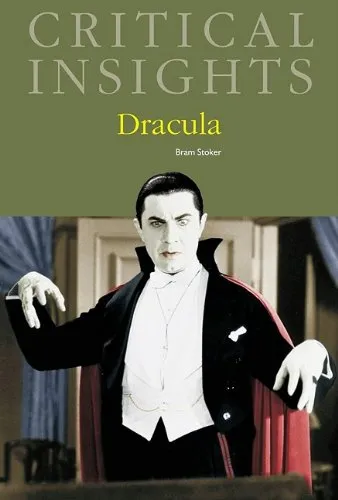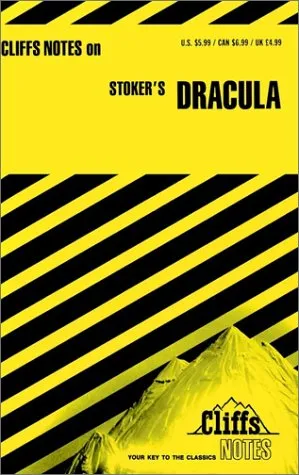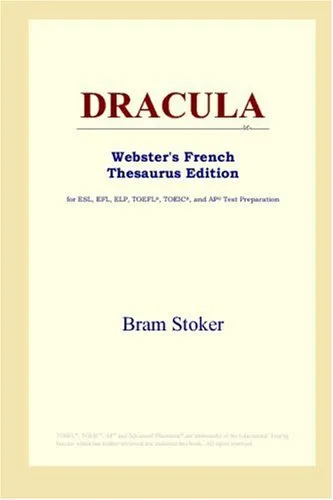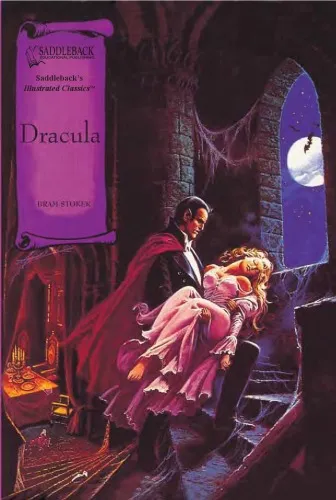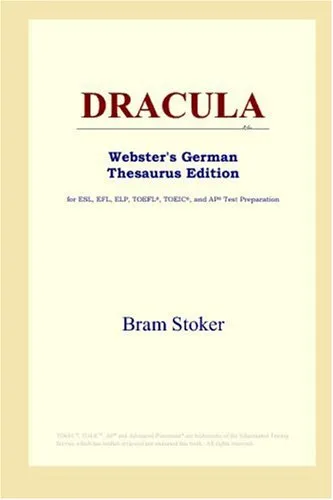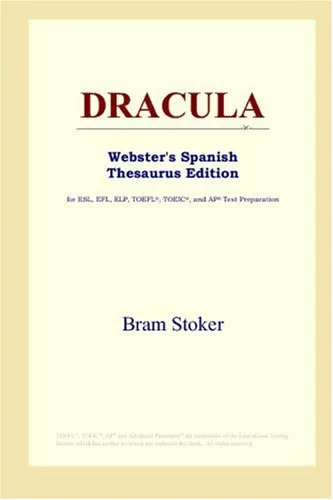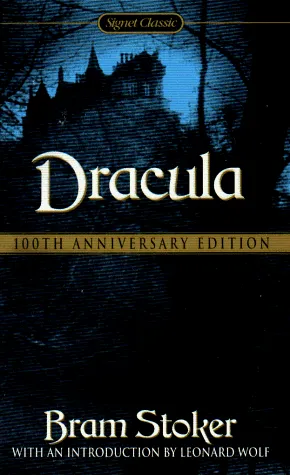Dracula (Critical Insights)
4.0
Reviews from our users

You Can Ask your questions from this book's AI after Login
Each download or ask from book AI costs 2 points. To earn more free points, please visit the Points Guide Page and complete some valuable actions.Related Refrences:
Persian Summary
Introduction to Dracula (Critical Insights)
Welcome to the world of 'Dracula', an enthralling blend of horror, gothic fiction, and vampire myth. 'Dracula' by Bram Stoker stands as a towering figure in literature that has captivated audiences for over a century with its rich blend of Gothic horror, mystery, and romance. This introduction aims to provide readers with a detailed overview of critical insights into this timeless novel.
Detailed Summary of the Book
'Dracula' narrates the chilling tale of Count Dracula's move from Transylvania to England in pursuit of spreading the undead curse. The story begins with Jonathan Harker, a solicitor, visiting Dracula’s castle for a business transaction. His journey quickly turns from professional to perilous as he becomes a prisoner in the eerie fortress. As Dracula makes his way to England, he encounters several characters, including Mina Murray, Jonathan's fiancée, and her friend Lucy Westenra, who falls gravely ill under mysterious circumstances.
The narrative unfolds through a series of journal entries, letters, and newspaper articles, offering a multifaceted view of the events as they occur. Doctor Van Helsing, an expert in obscure maladies, joins forces with Harker and other characters to battle Dracula and thwart his sinister plans. Amidst a backdrop of suspense, tension, and romance, the group navigates through a series of challenges that ultimately lead to a climactic confrontation with Count Dracula.
Key Takeaways
- Exploration of Good vs Evil: 'Dracula' delves into the age-old conflict between good and evil, with Count Dracula personifying malice and darkness while the ensemble cast of characters portrays resilience and morality.
- Impact of Modernity: The novel captures the tension between old-world superstition and emerging modern science and rationalism, reflected in the characters' struggle to combat the supernatural using contemporary knowledge and technology.
- Complex Narrative Structure: Stoker's use of an epistolary format provides diverse perspectives, adding depth and realism to the text while maintaining suspense and engagement throughout the story.
Famous Quotes from the Book
"I am Dracula, and I bid you welcome, Mr. Harker, to my house."
"There are darknesses in life and there are lights, and you are one of the lights, the light of all lights."
"We learn from failure, not from success!"
Why This Book Matters
The enduring appeal of 'Dracula' lies in its innovative approach to the vampire tale, setting standards for subsequent vampire lore in literature and popular culture. Stoker's novel has paved the way for countless adaptations and inspired a whole genre focused on the enigmatic and seductive vampire figure, persisting in literature, film, and television to this day.
Furthermore, 'Dracula' is a reflection of the social and cultural anxieties of the late Victorian era, particularly regarding immigration, sexual mores, and the role of women during a time of rapid change. The book serves not only as an entertaining story but also as a rich ground for critical exploration of themes that continue to resonate with modern audiences.
Free Direct Download
You Can Download this book after Login
Accessing books through legal platforms and public libraries not only supports the rights of authors and publishers but also contributes to the sustainability of reading culture. Before downloading, please take a moment to consider these options.
Find this book on other platforms:
WorldCat helps you find books in libraries worldwide.
See ratings, reviews, and discussions on Goodreads.
Find and buy rare or used books on AbeBooks.
1570
بازدید4.0
امتیاز0
نظر98%
رضایتReviews:
4.0
Based on 0 users review
Questions & Answers
Ask questions about this book or help others by answering
No questions yet. Be the first to ask!
